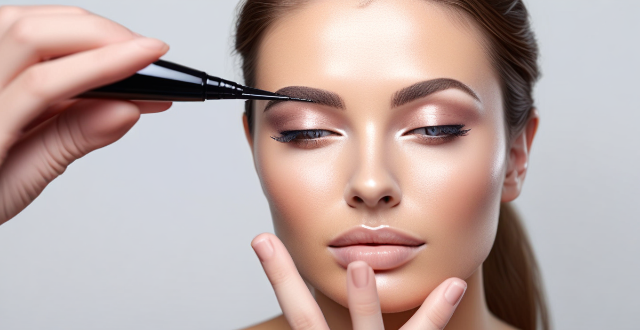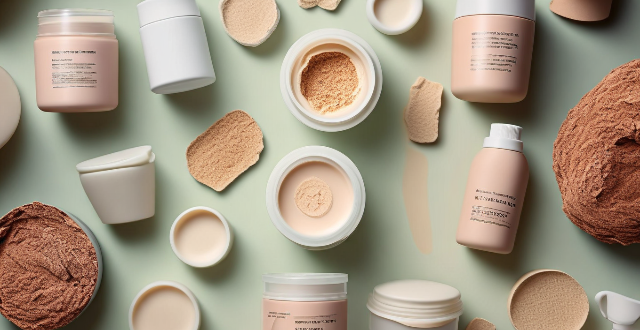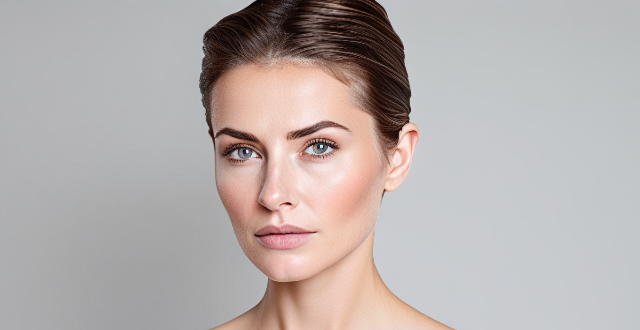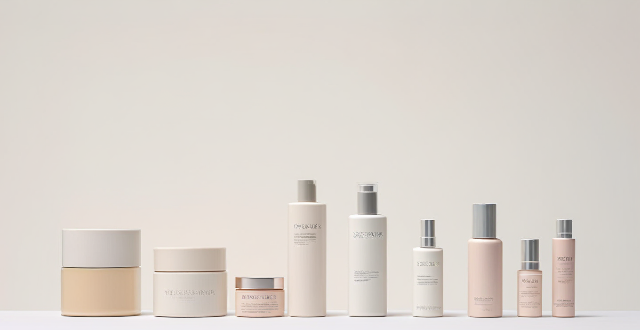Body Skin

What role does hydration play in maintaining healthy skin ?
Hydration plays a crucial role in maintaining healthy skin by moisturizing the skin, regulating body temperature, delivering nutrients to the skin, aiding digestion and detoxification, and boosting immunity. Drinking plenty of water and using moisturizers containing ingredients like hyaluronic acid, glycerin, or ceramides can help keep the skin hydrated and healthy. Proper hydration also supports numerous bodily functions that contribute to overall skin health.

How do celebrities maintain their youthful skin ?
Celebrities maintain their youthful skin through strict skincare routines, healthy lifestyle habits, professional treatments, stress management, and protective makeup. Their routine includes cleansing, toning, using anti-aging serums, moisturizing, and sun protection. They also follow a balanced diet, stay hydrated, exercise regularly, get enough sleep, and manage stress through techniques like meditation and yoga. Professional treatments such as chemical peels, microneedling, laser resurfacing, Botox, and fillers are also common among celebrities. Protective makeup and proper removal are also part of their skincare regimen.

Can diet affect the health and appearance of my skin ?
Diet can significantly affect the health and appearance of your skin. Incorporating nutrient-rich foods such as fruits, vegetables, nuts, fish, and whole grains can improve skin quality. On the other hand, consuming high amounts of sugar or processed foods can lead to inflammation and premature aging. Hydration is also key for maintaining skin's moisture levels. It's essential to consider dietary choices as part of a comprehensive skincare routine.

How do celebrities achieve flawless-looking skin with their makeup ?
Celebrities achieve flawless-looking skin with makeup by following a strict skincare routine, using primers and the right foundation, mastering contouring and highlighting techniques, setting their makeup for longevity, and enhancing their natural features like brows and lashes. By adopting these practices, anyone can recreate a celebrity-inspired makeup look at home.

What is the secret behind a celebrity's glowing skin ?
Celebrities are known for their flawless and glowing skin. While genetics play a significant role in determining the quality of one's skin, there are several other factors that contribute to a celebrity's glowing skin. These include professional skincare routines, healthy lifestyle habits, sun protection, makeup artists and estheticians, and sometimes luck in terms of genetics. By incorporating these practices into your daily routine, you can improve the overall health and appearance of your skin and enjoy a more youthful glow.

Can wearing a face mask cause skin irritation or acne ?
Wearing a face mask can cause skin irritation or acne due to friction, pressure, heat, moisture buildup, and bacterial growth. To prevent these issues, choose breathable materials, wash your face regularly with gentle cleansers, use oil-free skincare products, change your mask frequently, and consult a dermatologist if necessary.

How often should I exfoliate my skin ?
Exfoliation is an important part of maintaining healthy and youthful-looking skin. The frequency of exfoliation depends on your skin type and personal preferences. Here are some general guidelines: 1. For oily or acne-prone skin, it's recommended to exfoliate once or twice a week. This helps to remove excess oil and prevent clogged pores. 2. For normal to dry skin, exfoliating once a week is usually sufficient. However, if you have sensitive skin, you may want to reduce the frequency to every other week or even once a month. 3. For mature or aging skin, exfoliating once or twice a week can help to smooth out fine lines and wrinkles while promoting cell turnover. 4. If you're using a chemical peel or microdermabrasion treatment, follow the instructions provided by your aesthetician or doctor for the appropriate frequency of exfoliation. Remember that over-exfoliating can cause irritation and dryness, so it's important to find the right balance for your skin type. Always test new products on a small area of your face before applying them all over, and always use gentle exfoliants designed specifically for your skin type.

How do celebrities prepare their skin before applying makeup ?
Celebrities follow a skincare routine before applying makeup, tailored to their skin type and concerns. The routine includes cleansing, hydration, protection, and priming steps. An example routine for normal to dry skin is provided.

What are the best skincare products for acne-prone skin ?
Acne-prone skin can be challenging to manage, but with the right skincare products, you can effectively control breakouts and improve the overall health of your skin. Here are some of the best skincare products for acne-prone skin: Cleansers: Salicylic acid cleanser is excellent for dissolving excess oil and dead skin cells in pores. Benzoyl peroxide cleanser is a powerful antibacterial agent that kills acne-causing bacteria. Toners: Witch hazel toner tightens pores and reduces inflammation. Tea tree oil toner has antibacterial properties effective against acne-causing bacteria. Moisturizers: Oil-free moisturizer won't clog pores or worsen acne. Gel moisturizers are lightweight and non-greasy, providing hydration without adding extra oil to the skin. Treatments: Retinoids unclog pores, reduce inflammation, and promote cell turnover. Alpha hydroxy acids (AHAs) exfoliate the skin and unclog pores. Sunscreen: Oil-free sunscreen with at least SPF 30 shields the skin from harmful UV rays without clogging pores.

How do I choose the right makeup products for my skin type ?
The text provides a comprehensive guide on how to choose the right makeup products for different skin types. It starts by explaining the characteristics of each skin type and then suggests suitable makeup products based on these characteristics. For normal skin, lightweight and breathable formulas are recommended; for dry skin, hydrating products like rich moisturizers and liquid or cream foundations are suggested; oily skin should opt for oil-controlling primers and mattifying foundations; combination skin requires customization with balanced formulas; and sensitive skin should look for hypoallergenic and fragrance-free products with soothing ingredients. Additionally, the text offers general tips applicable to all skin types such as using sunscreen, gentle cleansers, and allowing each product to absorb before applying the next one. Overall, the guide emphasizes the importance of understanding your skin type to select makeup products that cater to its specific needs and enhance natural beauty.

How does exercise influence hormone regulation in the body ?
Exercise affects hormone regulation in the body, impactingExercise affects hormone regulation in the body, impacting the intensity, duration, and impacting various hormones depending on the intensity, duration, and type of exercise. Regular exercise can increase testosterone levels in men and estrogen levels in women, reduce cortisol levels, and increase growth hormone levels. It can also improve insulin sensitivity and reduce insulin resistance, as well as maintain a healthy body fat distribution. However, excessive exercise or prolonged periods of intense training can have negative effects on hormone production and lead to low testosterone levels in men, low estrogen levels in women, high cortisol levels, low growth hormone levels, worsened insulin resistance, and decreased body fat distribution. Therefore, it is important to choose an appropriate type of exercise and maintain a balanced lifestyle for optimal hormone regulation and overall health.

How do I choose the right foundation shade for my skin tone ?
Finding the perfect foundation shade and formula for your skin tone is essential for achieving a flawless and natural-looking complexion. Here are some tips to help you choose the right foundation: 1. Identify your skin tone (warm, cool, or neutral) and undertones (yellow/golden, pink/red, or a mix). 2. Test different shades on your jawline in natural light and consider multiple shades. 3. Choose the right formula based on your skin type (liquid, powder, or cream). 4. Set the foundation with a matching powder using a fluffy brush. By following these tips, you can find the perfect foundation for your skin tone and achieve a flawless and natural-looking complexion.